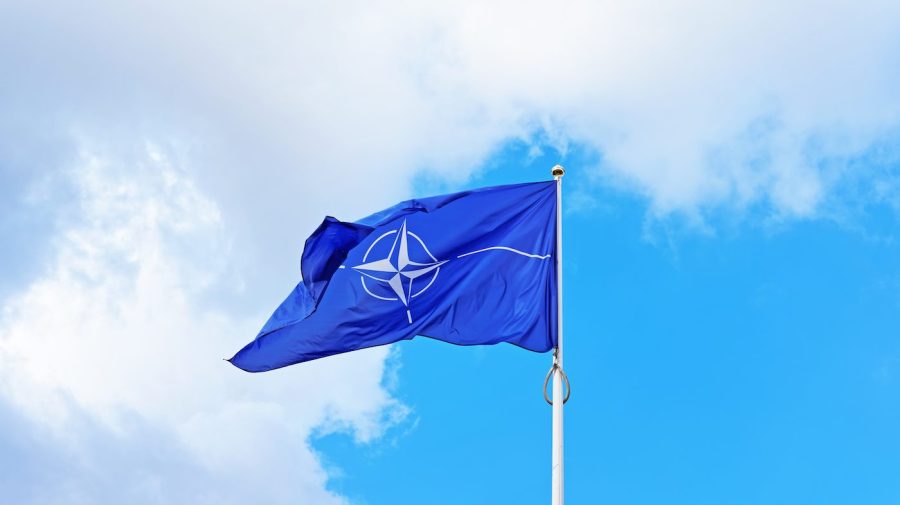
When images began streaming in of ordinary Russians slaughtered by terrorists at a concert hall outside Moscow, condolences came from everywhere, including NATO — the North Atlantic Treaty Organization (NATO) — which issued a statement: “nothing can justify such heinous crimes.”
In a world of conflict, violence and terrorism, we need nations to stand together.
Next week, it will have been 75 years since NATO was created by the United States, Canada and several Western European nations to provide collective security against what was then the Soviet Union. And NATO has a lot to celebrate: Its membership has gone from an original 12 nations to 32, with Sweden the latest to join.
But the war in Ukraine has given its mission of “collective defense” new meaning, and the organization faces threats in the years ahead:
The first, of course, is Russia.
A new report by the Institute for the Study of War warns that Vladimir Putin is determined to take on NATO, directly. “Several Russian financial, economic, and military indicators suggest that Russia is preparing for a large-scale conventional conflict with NATO, not imminently but likely on a shorter timeline than what some Western analysts have initially posited,” it states.
Polish President Andrzej Duda has been sounding the alarm about Putin for months, asking members to increase contributions to NATO to 3 percent of GDP in expectation of a confrontation with Russia within two to three years.
In the latest risk of escalation, Russian missiles bound for Ukraine flew over Polish territory. Warsaw is considering having NATO discuss shooting down missile incursions into a member country.
Meanwhile, the presidents of Latvia and Estonia are calling on NATO to reach “cold war spending levels” on collective defense and to consider returning to conscription to prepare for Russian aggression in the Baltics.
The second long-term problem for NATO is relevance. Though it has become better known since the Russian invasion of Ukraine, its public diplomacy — the explanation of its role in the world — still needs a serious boost, especially among young people.
For far too long, NATO has been best understood by elite foreign policy experts, leaving the public with a vague sense of its mission. Many do not know, for example, that NATO works on climate change and has its own fund for startups working on energy.
Knowledge of an institution breeds support. Americans, for example, with a bachelor’s or postgraduate degree are more likely than those with only some college or less education to have positive view of NATO, according to the Pew Research organization.
People in Europe generally have a positive view of NATO in the member states where, according to the same polling by Pew Research, 62 percent have a favorable attitude of the military alliance.
The third and most existential crisis for NATO is politics.
When it comes to NATO, the American political system is divided about how much support to provide. About three-quarters of Democrats (76 percent) have a favorable view of NATO, in contrast to 49 percent of Republicans. Among Republicans, moderates and liberals are more likely to have a favorable opinion of the alliance than conservatives, and fewer Republicans now have a high view of NATO than immediately after Russia invaded Ukraine three years ago.
And then there is former President Donald Trump, who as early as 2016 called NATO “obsolete.”
Once in office, many NATO members complained of feeling snubbed by President Trump — and in the case of Montenegro, literally “shoved” at a summit and called “a tiny country” with “very aggressive people.”
Now, as a candidate for the White House again, Trump has spoken negatively about NATO, again, saying he would “encourage” Russia to attack any NATO member country that did not pay its financial obligations. Though when pressed on NATO recently, Trump reversed himself and qualified his support.
On this 75th anniversary, NATO has announced an ambitious agenda, laid out in its NATO 2030 report, to be “ready, strong, and united for a new era of increased global competition” to respond to threats from terrorism, cyber, climate change and the regional challenges of countries like Russia and China.
Aware that it needs to constantly reform itself, NATO seems positioned, with its expanded membership, to lead the quest for freedom at a pivotal time in the world. At its upcoming summit in Washington in July, it should begin by clarifying what it will require for Ukraine to join NATO and how it will ensure that Russia does not decide what happens in the West.
For now, our job is to support NATO and encourage this generation of leaders and the next to understand it and embrace it.
Tara D. Sonenshine is senior fellow at the Fletcher School of Law and Diplomacy at Tufts University.
Copyright 2024 Nexstar Media Inc. All rights reserved. This material may not be published, broadcast, rewritten, or redistributed.














